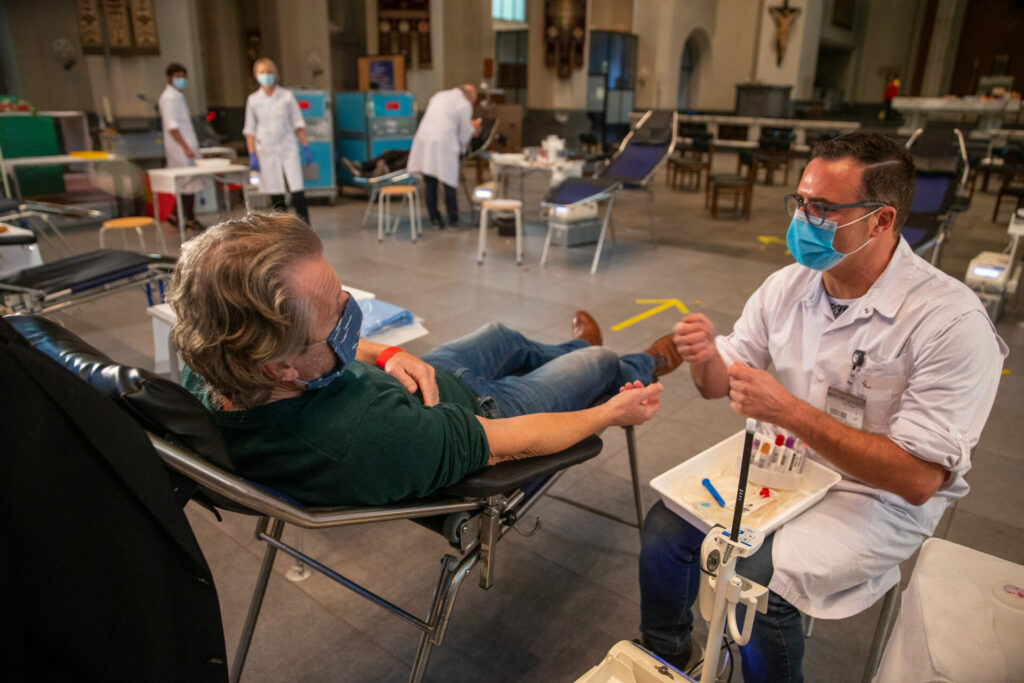Despite the growing shortage of blood donors, Belgium's Superior Health Council is advising against raising the age limit for blood donations from non-regular donors to the age of 66 – which comes down to a tightening of the current rules.
At the request of Federal Health Minister Frank Vandenbroucke, the Superior Health Council looked into blood donations for over-65s and concluded that donating regularly is "not recommended." Currently, they are still allowed to donate if they have already done so in the past three years.
Therefore, the new health recommendation is bad news for hospitals, that need blood to care for patients. Even if the share of blood donors in society systematically decreases from the age of 60, over-65s still make up 4.6% of the supply.
However, giving blood could entail certain risks for those over 65 years old, both for themselves and for those who will ultimately receive their blood. In concrete terms, there would be a risk that some cancers or age-related diseases, such as Parkinson's and Alzheimer's, are passed on at an early stage.
'No cause for concern'
"Diseases that affect the nervous system have a very long incubation period of up to several decades. Transfusions, for example, also involve administering blood to little babies. There is more time for the disease to develop later in life," stressed expert Roland Hubner. "Older people receiving blood for the first time could also faint or have convulsions. And when something like that happens, they usually recover more slowly."
To deal with blood shortages, the Superior Health Council instead advocates broader campaigns to find new (younger) donors and encourage current donors to donate blood more often.
The Red Cross, however, emphasised that it sees "no cause for concern," as the advice concerns a rather theoretical problem: figures show that the number of people over 65 who experience physical discomfort when donating blood is not necessarily higher than in other age categories.
"In fact, the risk of these so-called donor reactions – think of fainting or a large bruise – is even three times smaller among the over-65s than among the 20 to 29-year-olds," Philippe Vandekerckhove, managing director of Red Cross Flanders told VRT. "This is partly due to the fact that there is always a medical screening by the doctor before you can give blood in Belgium. And our doctors always treat older donors very carefully."
Related News
- Call for donors: Belgium's blood supply is alarmingly low
- The Belgian Red Cross launches new appeal for blood
- Red Cross refusing blood donations over West Nile virus
With regard to the potential risk of disease for the patient receiving the blood, the Red Cross has "full confidence in our three layers of safety, which are based on the best possible scientific research," he said. "Additionally, the new advice provides little concrete scientific evidence for a significantly higher risk."
Potential donors are required to fill out a medical questionnaire and see a doctor for an accompanying consultation before the donation can take place. Then, the blood samples are thoroughly tested and then processed. "Together, these three measures ensure that all blood products – including those originating from the over-65s – are extremely safe," said Vandekerckhove.
In Belgium, giving blood is possible up to four times a year. More information about where and under what conditions you can give blood in Belgium can be found on the website of the Red Cross.

